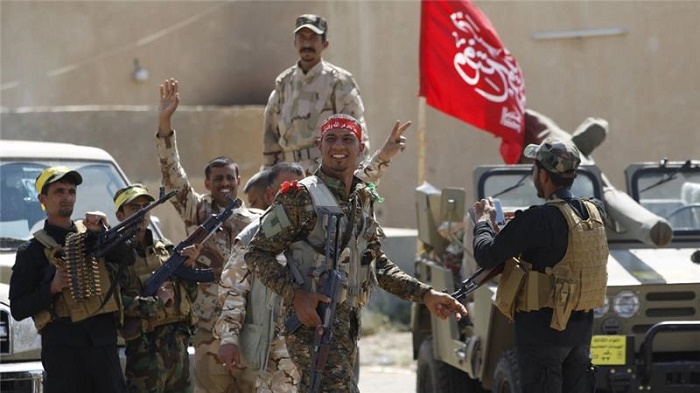Alwaght- The operation to liberate the northern Iraqi city of Mosul goes on according to an assault plan designed by the US while the northern, eastern, and southern fronts of the city are under heavy pressures from a coalition of Iraqi forces, and a desert area between the Mosul battlefields and the neighboring Syria were left unmonitored and unguarded.
The US plans appear to suggest that this desert area is set to be a safe corridor that will allow escape of the fighters of the ISIS terrorist group from the war hotshots in northern Iraq to Syria so that the terrorist groups in Syria can restore their wilting power and tip the scales of battleground against the Syrian army.
It is noteworthy that in the past months the Syrian army brought under its heavy fire positions of an array of terrorist groups in different parts of the country, and particularly in Aleppo in north, taking advantage of a staunch air cover provided by the Russian air force's fighter jets. The battleground evidences indicate that the terrorist groups are now in their worst-ever conditions since the eruption of conflict in Syria in 2011.
As a result of failure of anti-Syrian militant groups, the US along with its regional allies like Saudi Arabia and Turkey have laid out a scheme that will open specific paths for the terrorists to flee Mosul to the Syrian territory in a bid to restore the earlier conditions and prevent possible defeats in the Syrian fronts.
But units from the majorly Shiite Iraqi Public Mobilization Forces(PMF), that under US strains were practically driven out of the Mosul recapture operation to relax the so-called concerns about post-ISIS sectarian violence raised by the Sunni majority, have learned about the secret plans of the US for opening ways for militants to escape to Syria. This understanding by the PMF led to launching some subordinate operations to block escape routes of the terrorists in Tal Afar, 63 kilometers from Mosul, in coordination with the central Iraqi government.
The PMF's move changed the course of developments that Washington expected them to take place. They by no means were according to will of the US and its allies in the region, specifically Turkey. The PMF forces now reached Tal Afar with a majority of its population from the Turkmens. The city since the past held connections with Al-Qaeda terrorist group and is known to be safe haven for the Sunni terrorists. Before fall of Mosul to ISIS in 2014, Tal Afar was home to 200,000 of majorly Turkmen residents with a quarter of them Shiite Muslims and others Sunnis. When ISIS captured the city, its Shiite population were expelled from their homes by the terrorist group.
The Iraqi popular forces so far liberated several desert cities that facilitated movement of suicide bombers from Syria to Mosul. Now, the fighters of the majorly Shiite PMF are bracing for a battle that makes the blood of the US troops who formerly served in Nineveh province run cold. The villages that are expected to shift into a battlefield between PMF and the terrorists include Tal Salat, Sahlaji, Mohalania, and Tal Abta.
It seems that the moves of PMF in Tal Afar have raised the hackles of Turkey more than the US. Turkey opposed entry of PMF to Tal Afar, arguing that this could endanger the lives of the Turkmens in the city. This comes while the Turkish government in 2014 made no move to prevent fall of the city to ISIS or protect the Turkmens. The Turkish President Recep Tayyip Erdogan warned that if PMF entered Tal Afar, Turkey will respond in a different way.
In the beginning of the Mosul liberation operation the Americans attempted to marginalize the PMF from the assault under the excuse of worries about potential sectarian clashes between the Sunnis and the Shiites but they have astutely taken the initiative in Mosul recapture offensive. By retaking Tal Afar and cutting the terrorists' supply lines between Syria and Iraq, the PMF appear to have foiled geopolitical plans of Washington and allies. They reacted by launching a heavy anti-PMF media propaganda to baselessly accuse them of violations including sectarian measures in a bid to press the popular voluntary forces out of battle and then implement their scheme that aims at facilitating terrorists' escape from Mosul to Syria.



























